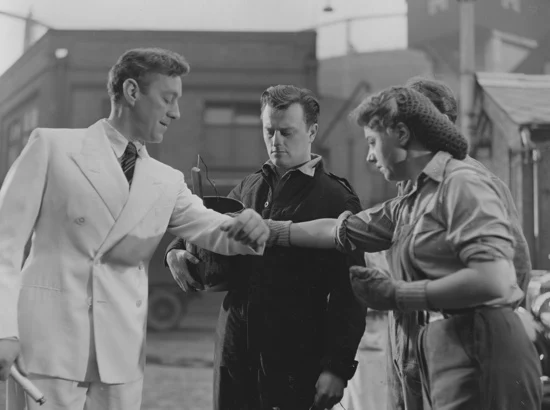 |
| Ava Gardner and Richard Burton in The Night of the Iguana |
It's a movie adaptation of a play by Tennessee Williams, so you know you're going to see a lot of Acting and hear a lot of rather florid dialogue. As for the capital-A acting, it's Ava Gardner who almost steals the show, just by being her gorgeous, free-spirited self. It's a great part for an actress in her middle years (Gardner was 42), as the casting of Bette Davis in the original Broadway production suggests. Gardner plays Maxine Faulk, the proprietor of a slightly louche Puerto Vallarta hotel, who finds herself welcoming to the hostelry an old friend, the Rev. T. Lawrence Shannon (Richard Burton), along with a company of teachers from a Texas Baptist women's college, whose tour bus he has just hijacked. He has come to recuperate from a variety of scandals, including some carrying-on with the nubile Charlotte Goodall (Sue Lyon), who is chaperoned by the up-tight Judith Fellowes (Grayson Hall in an Oscar-nominated performance). Maxine is reluctant to shelter Shannon's flock, but his apparent disordered state of body and mind breaks down her resistance. Soon they are joined by another itinerant pair, Hannah Jelkes (Deborah Kerr) and her nonagenarian grandfather, known as Nonno (Cyril Delevanti) and billed by Hannah as "the world's oldest living poet." If I give the acting award to Gardner out of this company it's because her part is the most entertaining and she knows it. Kerr is stuck in yet another of her spinster roles, and she's given the burden of becoming the voice of truth and righteousness in the film. Fortunately, she's more than up to it, making Hannah a more interesting character than you might expect. It's Burton who comes off worst in the film, maybe because the screenplay's opening-up of the role, giving Shannon scenes that weren't originally contrived by Williams, fragments the character and causes Burton to have to act out what should have been a backstory better left to our imagination. We didn't need the prologue in which Shannon scandalizes his church and the scenes of rebellious misbehavior along the tour to understand why he's so close to a breakdown when they arrive at Maxine's hotel -- Burton is more than capable of delivering that kind of exposition, and seeing them only complicates our reaction to the character. So it's a mixed bag as a movie, though not without its pleasures and some genuinely moving scenes. It also suffers less from Hollywood censorship than most of the film adaptations of Williams's plays: By 1964 things had loosened up enough that the screenplay can be a little more explicit about things that had been swept under the carpet in the 1950s. I do happen to find that the implication that Miss Fellowes is a closeted lesbian unnecessary and tasteless, especially since it inspires disgust in the otherwise freewheeling Maxine, but such were the times.














